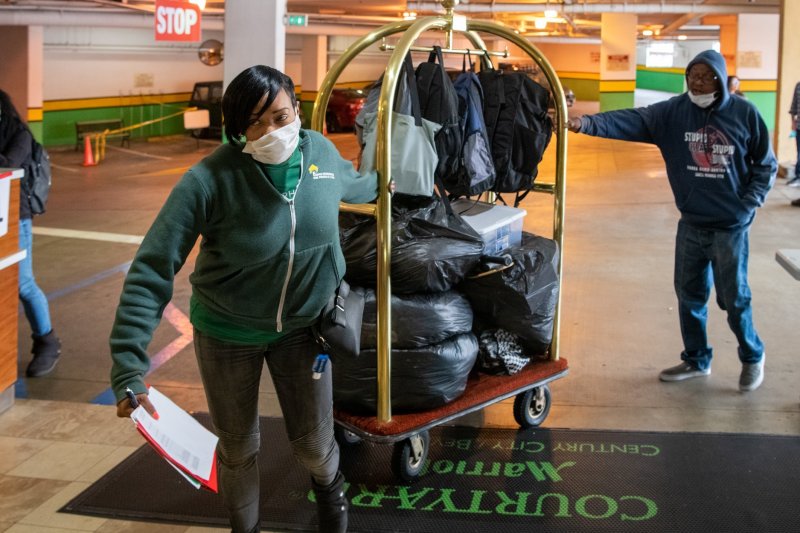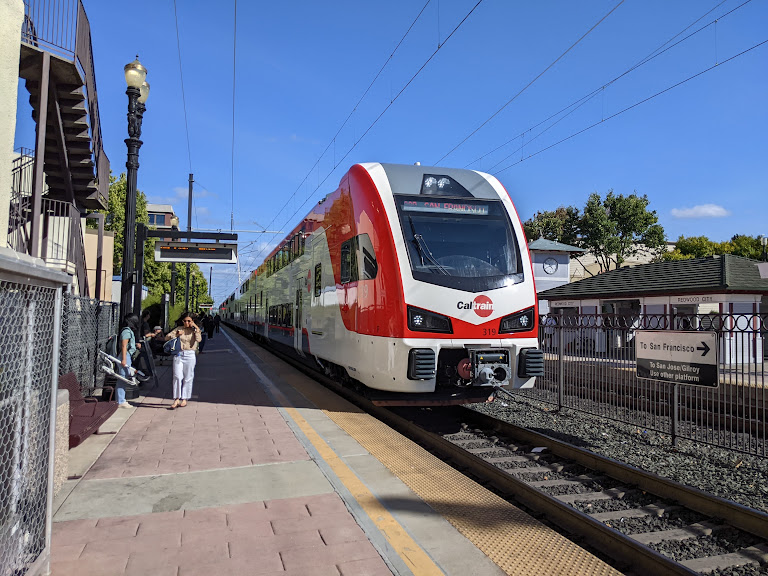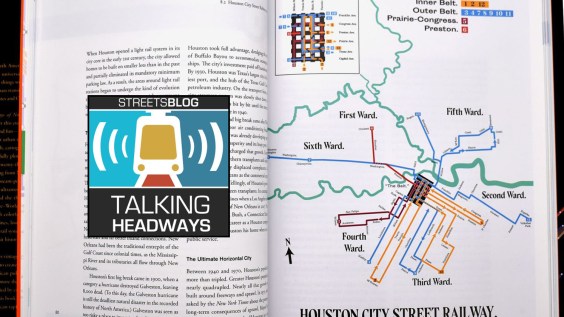Last evening, Mayor Eric Garcetti announced that the city was releasing $75 million in up-front funding to extend Project Roomkey at three city hotels until September. The move will keep 1,200 rooms in the program, 900 of which are currently filled. The other three hundred rooms will be filled "quickly" with prioritization going to people living on Skid Row, Black women, seniors, and people experiencing homelessness in Echo Park. All three hotels were expected to wind down their participation in the program by the end of the month. The $75 million will be reimbursed by FEMA.
That action was seen as a good first step by members of the City Council Homelessness and Poverty Committee, who met earlier today and moved a motion by Councilmembers Nithya Raman and Mike Bonin. The motion calls for the city to rapidly expand Project Roomkey both in duration and in number of rooms offered, after a federal promise to reimburse costs for the program through next September.
Bonin introduced the motion by saying, "The item is about taking advantage of the incredible opportunity the Biden administration has given us to get thousands of people off the street." While everyone serving on the committee agreed with its purpose, two issues caused additional discussion: the speed with which the city can and is moving to expand the Roomkey Program, and whether the city should consider commandeering rooms to bolster the number available.
The motion asks that the City Attorney explain "what steps need to be taken, and by which agency, body, or person, to begin commandeering hotels and motels for use as homeless housing." A letter from the Hotel Association of Los Angeles claims that hotels offered over 30,000 rooms for the first round of Project Roomkey, but less than 5,000 rooms were filled at any point. Therefore, says the association, the problem is not one of supply.
But supply has been blamed for the county's inability to meet the 15,000-room goal set by Garcetti and County Supervisors last April. At last night's hearing, however, the blame was shifted to an inability to provide the supportive services (food, counseling, addiction treatment, etc) that are a critical part of Project Roomkey. With more funding and a longer timeline, finding and funding providers for these services should be easier.
Yesterday, the City Attorney's office released a letter clarifying that the mayor of Los Angeles has the power to commandeer rooms as part of the emergency COVID order passed last spring.
"The language of 'commandeering' is not helpful," Councilmember Joe Buscaino said, asking that this part of the motion be removed. Buscaino also stated that the language was not needed in light of the City Attorney's letter.
Committee Chair Mark Ridley-Thomas noted that, beyond the question of having authority to do so, the motion asks what has to be done to exercise that authority. While 'commandeering' ultimately stayed, Raman did agree to add language about working with the Hotel Association to identify rooms to add to the program.
When discussing the urgency and potential scope of a new Project Roomkey with full federal backing, Raman encouraged the Council and City to think big and act quickly.
"We need to be ambitious," Raman pleaded with the council. "I've heard the word 'hundreds' but we need be hearing 'thousands' [of new rooms to be added to Roomkey]."
Rumors have been swirling that both the city and county are worried about not being able to afford the up-front costs of the program. The federal reimbursement process can take up to two years and city and county budgets are tight. Raman directly addressed those concerns noting that the city, county and state all have surpluses in their budgets prepared last year. Some callers who testified also noted surpluses in the LAPD budget.
"They say where there's a will there's a way," said Bonin, agreeing with Raman. "In this case, there has to be a way."
While Raman didn't go as far as Bonin, who last week called for a judicial Consent Decree on City and County efforts to combat homelessness, she did bemoan the slow pace of both the city and the county moving to take advantage of the FEMA funds. The FEMA reimbursement guarantee is good through the end of September, about 32 weeks away, and already two weeks were gone before a City Council committee could hear their motion. To slow things down even more, another committee, the "Ad Hoc Committee on COVID-19 Recovery and Neighborhood Investment," has to hear the motion before it can move to the full Council.
As we kick off our second H & P committee meeting, while there are a number of items before us today, I want to briefly talk about item 1—A Right to Housing https://t.co/uc2sFmtxYz [1/8]
— Mark Ridley-Thomas (@mridleythomas) February 11, 2021
The Committee also moved a motion by Ridley-Thomas requiring a report on how the city can move towards a Right to Housing framework, a motion calling for LADOT to open lots for the Safe Parking program, and studying how the city can use city-owned properties to provide more housing opportunities.
Find the full meeting agenda, here. The author also live tweeted the meeting here as did K-Town for All.
Here is the City Attorney's memo on commandeering hotels: "Because of the need to act quickly during the pandemic, such an administrative hearing process would likely satisfy the constitutional requirements." https://t.co/tuIgKvyJgs
— Ktown for All 💜❤ (@KtownforAll) February 11, 2021






